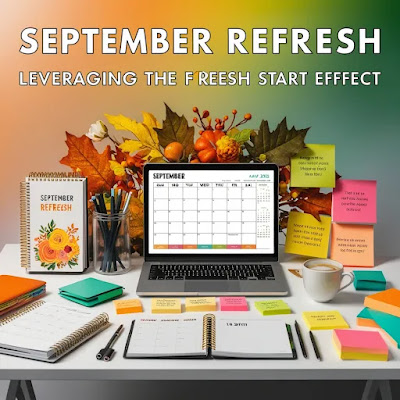Setting Boundaries: The Key to Healthier Relationships
Setting Boundaries: The Key to Healthier Relationships
In our fast-paced world, relationships—whether with family, friends, colleagues, or romantic partners—are integral to our well-being. However, maintaining healthy relationships requires more than just love and connection; it also necessitates setting and respecting boundaries. When boundaries are clearly defined and honored, they become the foundation of mutual respect, trust, and emotional well-being. This article will explore the importance of setting boundaries for healthier relationships, offering practical advice on how to establish them effectively. By the end, you’ll have the tools to navigate relationships with confidence, ensuring your emotional and mental health are prioritized.
Understanding Boundaries in Relationships
What Are Personal Boundaries?
Personal boundaries are the limits we set for ourselves within relationships, defining what we are comfortable with and how we expect others to treat us. They are essential for protecting our emotional, physical, and mental well-being. Boundaries are deeply personal and can vary greatly from one person to another. They help us maintain a sense of self while interacting with others, preventing us from being overwhelmed or taken advantage of.
The Role of Boundaries in Healthy Relationships
Healthy relationships thrive on mutual respect, trust, and understanding. Boundaries play a crucial role in establishing these pillars by clearly communicating our needs and expectations. When both parties understand and respect each other's boundaries, it leads to a more harmonious and supportive relationship.
Benefits of Setting Boundaries:
- Emotional well-being: Boundaries protect us from emotional harm and prevent us from taking on more than we can handle.
- Mental health: Setting clear limits helps reduce anxiety and stress by defining what is acceptable in our interactions.
- Healthy communication: Boundaries promote open and honest communication, fostering trust and understanding.
- Self-care: Respecting your own boundaries allows you to prioritize self-care, ensuring you don’t neglect your own needs.
The Impact of Boundaries on Emotional Well-being
Protecting Your Mental Health
When we fail to set boundaries, we often find ourselves overwhelmed, stressed, and emotionally drained. This can lead to burnout, anxiety, and even depression. By setting clear boundaries, we create a safe space where we can recharge and maintain our mental health.
Signs Your Boundaries Are Being Crossed:
- Feeling consistently drained after interactions with certain people.
- Experiencing resentment or frustration towards others.
- Struggling to say "no" even when overwhelmed.
- Feeling guilty for prioritizing your needs.
Enhancing Self-Care Through Boundaries
Self-care isn’t just about taking time for yourself; it’s also about protecting your time, energy, and emotions. Setting boundaries is a form of self-care because it ensures that your needs are met and that you aren’t sacrificing your well-being for others. When you respect your boundaries, you give yourself permission to put your health and happiness first.
Communication: The Cornerstone of Boundaries
Healthy Communication in Boundary Setting
Effective communication is key to setting and maintaining boundaries. When you communicate your boundaries clearly and assertively, you help others understand your needs and expectations.
Tips for Healthy Communication:
- Be clear and specific: Avoid vague statements. Instead, clearly state what you need and expect.
- Use “I” statements: Focus on your feelings and needs rather than blaming or accusing others.
- Stay calm and composed: Emotions can run high when discussing boundaries. Keep your tone respectful and calm.
- Be consistent: Consistency reinforces your boundaries and shows others that you are serious about them.
Assertiveness: Standing Up for Your Boundaries
Assertiveness is the ability to express your thoughts, feelings, and needs directly and respectfully. It is a vital skill in boundary setting, as it allows you to stand up for yourself without being aggressive or passive.
Practicing Assertiveness:
- Use confident body language: Maintain eye contact and speak clearly.
- Respectfully decline: Learn to say "no" without feeling guilty. You have the right to prioritize your needs.
- Set consequences: If someone continually disrespects your boundaries, be prepared to enforce consequences.
Respect and Trust in Relationship Dynamics
The Importance of Mutual Respect
Mutual respect is the foundation of any healthy relationship. It involves recognizing and honoring each other’s boundaries, needs, and individuality. When respect is present, both parties feel valued and understood, which fosters a stronger connection.
Building Mutual Respect:
- Listen actively: Show that you value the other person’s perspective by listening without interrupting.
- Acknowledge boundaries: Respect the other person’s limits, even if they differ from your own.
- Support each other: Encourage and support each other’s goals and aspirations.
Trust: The Outcome of Honored Boundaries
Trust is built when boundaries are consistently respected. It grows over time as both parties demonstrate reliability and respect for each other’s limits. When trust is present, it becomes easier to navigate challenges and conflicts without damaging the relationship.
Conflict Resolution and Boundary Setting
Navigating Conflicts with Healthy Boundaries
Conflicts are a natural part of any relationship, but how we handle them can make a big difference. Setting and maintaining boundaries during conflicts ensures that disagreements don’t escalate into disrespect or harm.
Steps to Resolve Conflicts While Maintaining Boundaries:
- Stay calm: Take a moment to breathe and collect your thoughts before responding.
Acknowledge emotions: Recognize and validate each other’s feelings without judgment.- Focus on the issue: Address the specific problem at hand without bringing up unrelated issues.
- Propose solutions: Work together to find a resolution that respects both parties’ boundaries.
Empowerment Through Boundary Setting
Setting boundaries empowers you to take control of your life and relationships. It allows you to define what you will and will not accept, giving you the confidence to stand up for yourself.
How Boundary Setting Empowers You:
- Increased self-respect: You demonstrate self-respect when you set and enforce boundaries.
- Greater independence: Boundaries allow you to maintain your individuality and autonomy within relationships.
- Improved relationships: Healthy boundaries lead to more fulfilling and balanced relationships.
Techniques for Effective Boundary Setting
Practical Boundary Setting Techniques
Boundary setting is a skill that can be developed and refined over time. Here are some practical techniques to help you establish and maintain healthy boundaries:
- Reflect on your needs: Take time to understand what you need from your relationships and where your limits lie.
- Communicate openly: Share your boundaries with others in a clear and respectful manner.
- Practice saying “no”: Start small by saying no to things that are less important, then gradually build up to bigger requests.
- Set time limits: If you need personal space, set time limits for interactions to ensure you have time for yourself.
- Seek support: Don’t hesitate to seek support from friends, family, or a therapist when setting boundaries.
Emotional Boundaries: Protecting Your Inner Self
Emotional boundaries are crucial for protecting your inner self from emotional harm. They involve recognizing your own emotions and knowing when to distance yourself from situations or people that negatively affect your well-being.
Ways to Strengthen Emotional Boundaries:
- Identify triggers: Be aware of situations or people that trigger negative emotions.
- Limit exposure: Reduce contact with individuals who consistently cross your emotional boundaries.
- Express your feelings: Communicate your emotions openly, but also know when to walk away.
Work-Life Balance and Boundaries
The Role of Boundaries in Achieving Work-Life Balance
In today’s hectic world, achieving a healthy work-life balance is more important than ever. Setting boundaries at work and in your personal life is essential for maintaining this balance and preventing burnout.
Tips for Work-Life Balance:
- Set work hours: Define specific work hours and stick to them to prevent work from encroaching on your personal time.
- Take breaks: Regular breaks during work can help you recharge and stay productive.
- Prioritize self-care: Make time for activities that rejuvenate you, such as hobbies, exercise, or relaxation.
- Communicate your limits: Let your employer and colleagues know your boundaries regarding work hours and availability.
Personal Space: A Non-Negotiable Boundary
Personal space is a non-negotiable boundary that everyone needs. It’s essential for recharging and maintaining your mental and emotional health. Whether it’s physical space or time alone, respecting personal space is crucial for both your well-being and your relationships.
Navigating Toxic Relationships
Recognizing Toxic Relationships
Toxic relationships are those that consistently drain your energy and harm your emotional well-being. They are characterized by manipulation, disrespect, and a lack of boundaries. Recognizing these signs early on is crucial for protecting yourself.
Signs of a Toxic Relationship:
- Constant negativity: The relationship brings more stress and anxiety than joy.
- Manipulation: You feel controlled or manipulated by the other person.
- Disrespect: Your boundaries are regularly ignored or disrespected.
- One-sidedness: The relationship feels unbalanced, with one person taking more than they give.
Setting Boundaries in Toxic Relationships
If you find yourself in a toxic relationship, setting boundaries is crucial for protecting yourself. This might involve limiting contact, seeking support, or even ending the relationship if it continues to harm your well-being.
Steps to Set Boundaries in Toxic Relationships:
- Be firm and clear: Clearly state your boundaries and the consequences if they are crossed.
- Limit contact: Reduce interactions with the person if possible.
- Seek support: Talk to friends, family, or a therapist for support.
- Consider ending the relationship: If the relationship continues to harm you despite setting boundaries, it may be necessary to end it.
The Power of Empowerment Through Boundaries
How Boundaries Lead to Empowerment
Setting and maintaining boundaries is a powerful form of empowerment. It allows you to take control of your life, prioritize your needs, and foster healthier, more fulfilling relationships.
The Empowering Effects of Boundaries:
- Increased confidence: Knowing your limits and standing by them boosts self-esteem and confidence.
- Better decision-making: Boundaries help you make decisions that align with your values and well-being.
- Stronger relationships: Healthy boundaries lead to stronger, more respectful relationships.
Boundary Setting as a Lifelong Practice
Boundary setting is not a one-time event; it’s a lifelong practice that evolves as you grow and change. As you gain more experience in setting and enforcing boundaries, you’ll find it easier to navigate relationships and protect your well-being.
FAQ
1. What are some common types of boundaries?
Common types of boundaries include physical boundaries (personal space and touch), emotional boundaries (protecting your emotions), time boundaries (how you spend your time), and mental boundaries (respecting thoughts and opinions).
2. How do I know if my boundaries are being respected?
You’ll know your boundaries are being respected when others listen to and honor your limits, and you don’t feel pressured to compromise your needs.
3. What should I do if someone continually disrespects my boundaries?
If someone continually disrespects your boundaries, communicate clearly about the issue and consider setting consequences if the behavior continues. In some cases, it may be necessary to distance yourself from the person.
4. Can setting boundaries hurt my relationships?
While setting boundaries may cause temporary discomfort or tension, it ultimately strengthens relationships by promoting mutual respect and understanding.
5. How can I set boundaries at work without damaging my career?
Set boundaries at work by clearly communicating your availability, prioritizing tasks, and ensuring that you take time for self-care. It’s important to be assertive yet respectful when discussing your limits with colleagues and supervisors.
Take Control of Your Relationships
Setting boundaries is not just about protecting yourself—it's about creating healthier, more balanced relationships. Start today by reflecting on your needs and communicating them clearly to those around you. Whether you're dealing with a toxic relationship or simply want to improve your existing connections, boundaries are the key to emotional well-being and mutual respect. For more tips on personal growth and well-being, visit ElevateAura.net and take the first step toward a more empowered life.
By setting and respecting boundaries, you can cultivate relationships that are supportive, balanced, and enriching. Prioritize your well-being, communicate openly, and don’t be afraid to assert your needs. You deserve relationships that uplift and empower you, and boundaries are the key to making that a reality.






